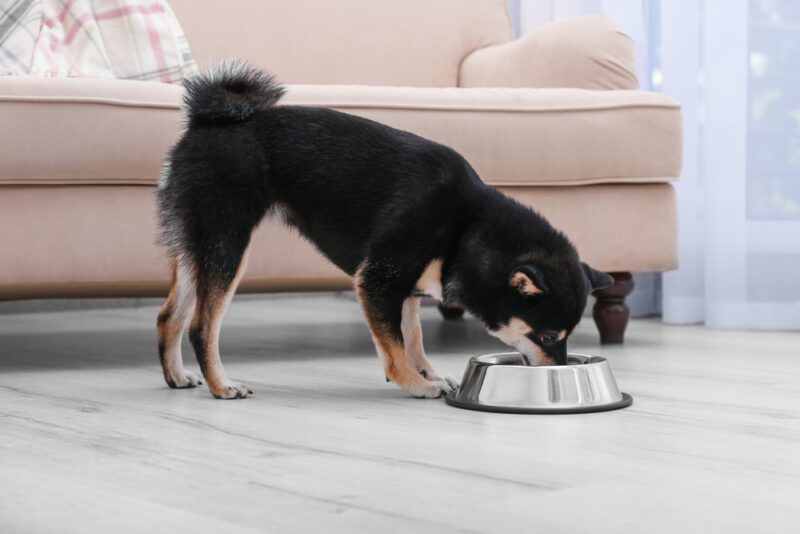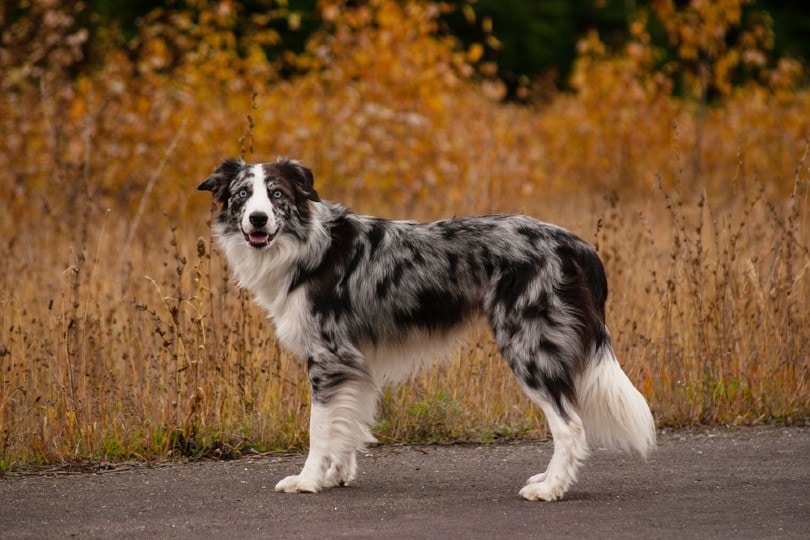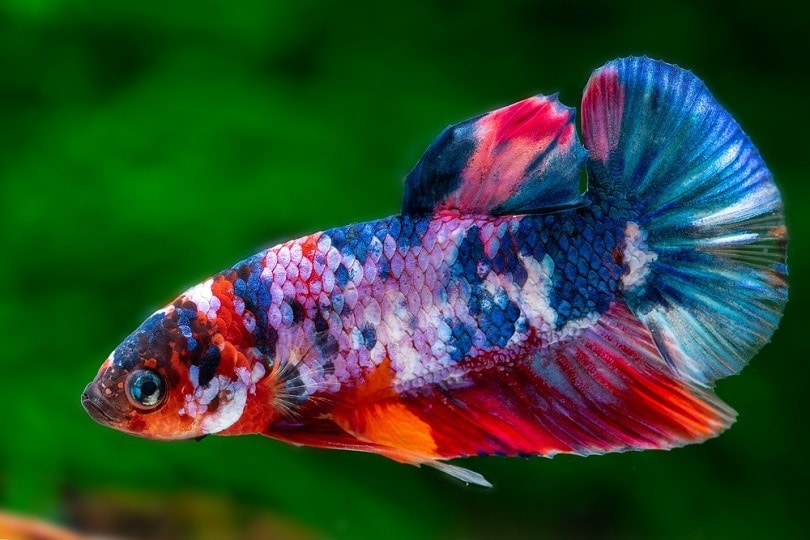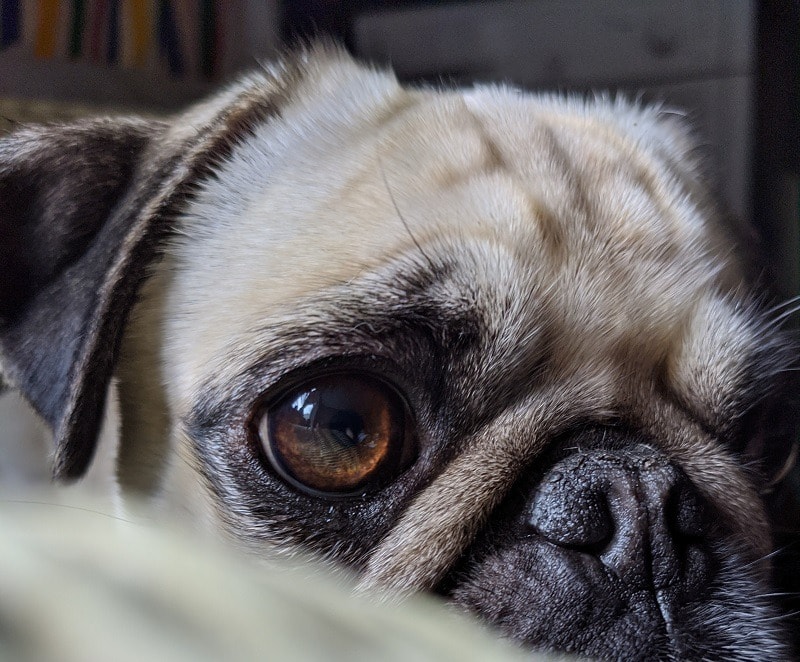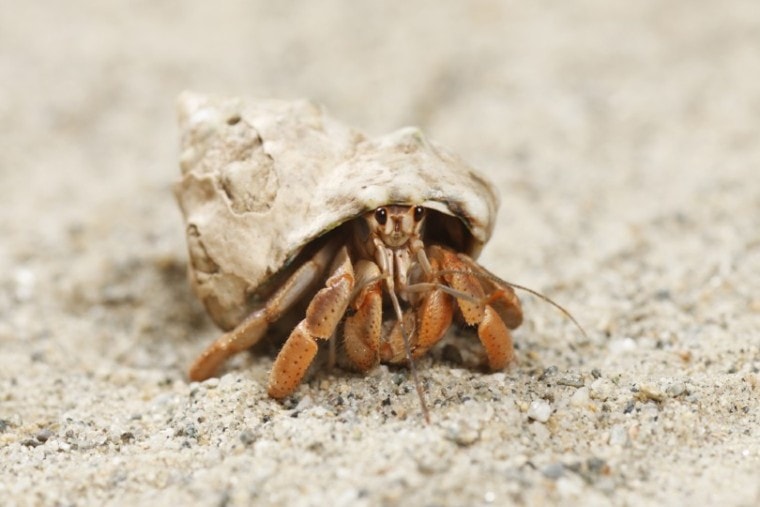
If you have been to the beach or anywhere near the ocean, you’ve probably seen at least one or two of these shelled little critters walking around. Hermit crabs are cute little decapod crustaceans that have long been popular pets for ocean lovers and pet enthusiasts alike!
But when obtaining your own hermit crab (or crabs—they love being in groups!), it is important to know what kind of food you can or cannot give them. So, what do hermit crabs eat? Hermit crabs are omnivorous scavengers, which means they can eat both plant- and animal-based foods. Keep reading to learn more about their diet and what you can feed to your pet hermit crab.
About the Hermit Crab
Before finding out what hermit crabs eat, we first need to know a few important things about this crustacean. The hermit crab is a decapod, meaning they have 10 legs and live in a shell. However, the hermit crab is not your usual crab, as they survive by jumping from one shell to another, relying on the shells of other animals rather than growing their own. Hermit crabs grow by molting approximately every 18 months, depending on the conditions, which means they will have to look for another shell when they outgrow the one they are currently using.
They are usually found near both saltwater and fresh water, where they can scuttle, burrow, and search for food while also finding a place to store their eggs. Hermit crabs are nocturnal animals, meaning they are more active at night than during the day.
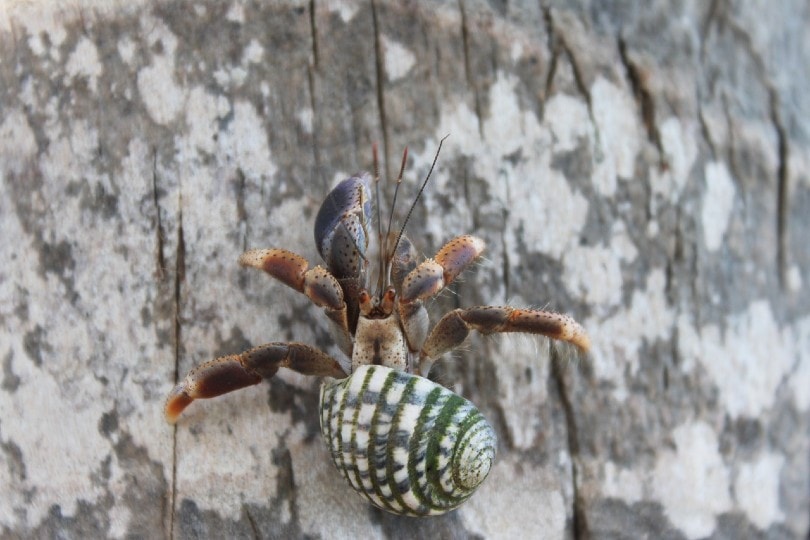
What Do Hermit Crabs Eat in the Wild?
Hermit crabs are omnivorous scavengers, which means they eat both plant-based and animal-based foods—basically, just about anything they find! In the wild, they can find food in two ways. Despite having no nose, they find food by smelling with the receptors on their antennae. They also find food through observation, eating the same things that they see their fellow hermit crabs eat!
But when you’re caring for a hermit crab, it is important to feed them healthy foods rather than just anything, to ensure that they get the necessary nutrients.
Foods to Feed Your Hermit Crab

Since hermit crabs are omnivorous in nature, you can feed them animal- and plant-based foods. It is important to give your hermit crab a balanced diet between the two. Hermit crabs are natural scavengers, so you should provide them with a variety of foods so they don’t get bored!
- See also: How to Take Care of a Pet Hermit Crab
Animal-Based Foods
Protein is essential in your hermit crab’s diet. It can be obtained from different meats and fish. Eggs are also a good source of protein and can be fed scrambled or hard boiled. Here are a few other protein options:
Plant-Based Foods
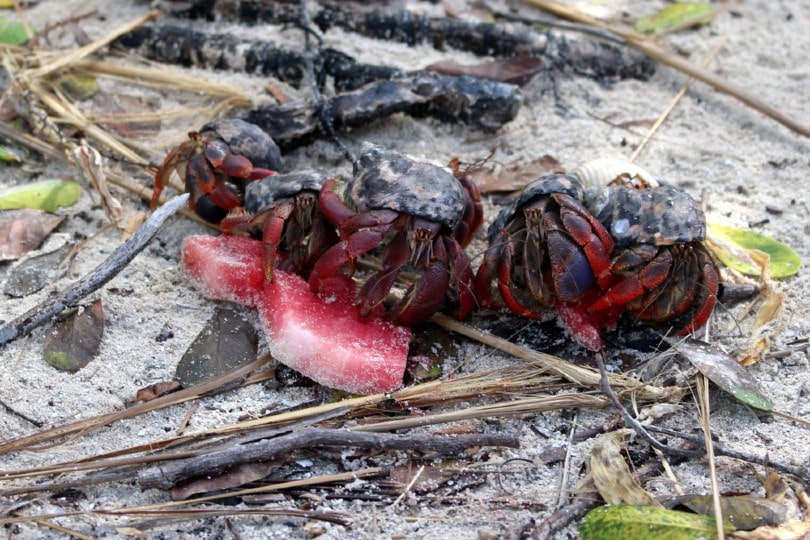
Fruits and Vegetables
Plant-based foods are important in a hermit crab’s diet. Properly washed fruits and vegetables are preferred to ensure that your hermit crab is not ingesting any harmful chemicals. A small number of fruits and vegetables are recommended every day for a balanced diet. Sea vegetables can also be fed to hermit crabs! Here are a few common plant options:
Other Plant-Based Foods
Aside from fruits and vegetables, there are other foods that can be fed to your hermit crab that are beneficial. Flowers, leaves, and grasses are good fill-ins for your hermit crab’s meals.
You can also give them different grains and seeds, as these are good sources of carbohydrates, fats, vitamins, and minerals. Ideal grains include rice or cereals, and good seeds include sunflower or chia seeds. Oils, such as olive and coconut oils, can also be given on occasion, as these are good sources of various nutrients.
To go beyond meat, you can give plant-based proteins to your crab, such as broccoli, soybeans, spinach, and kale.
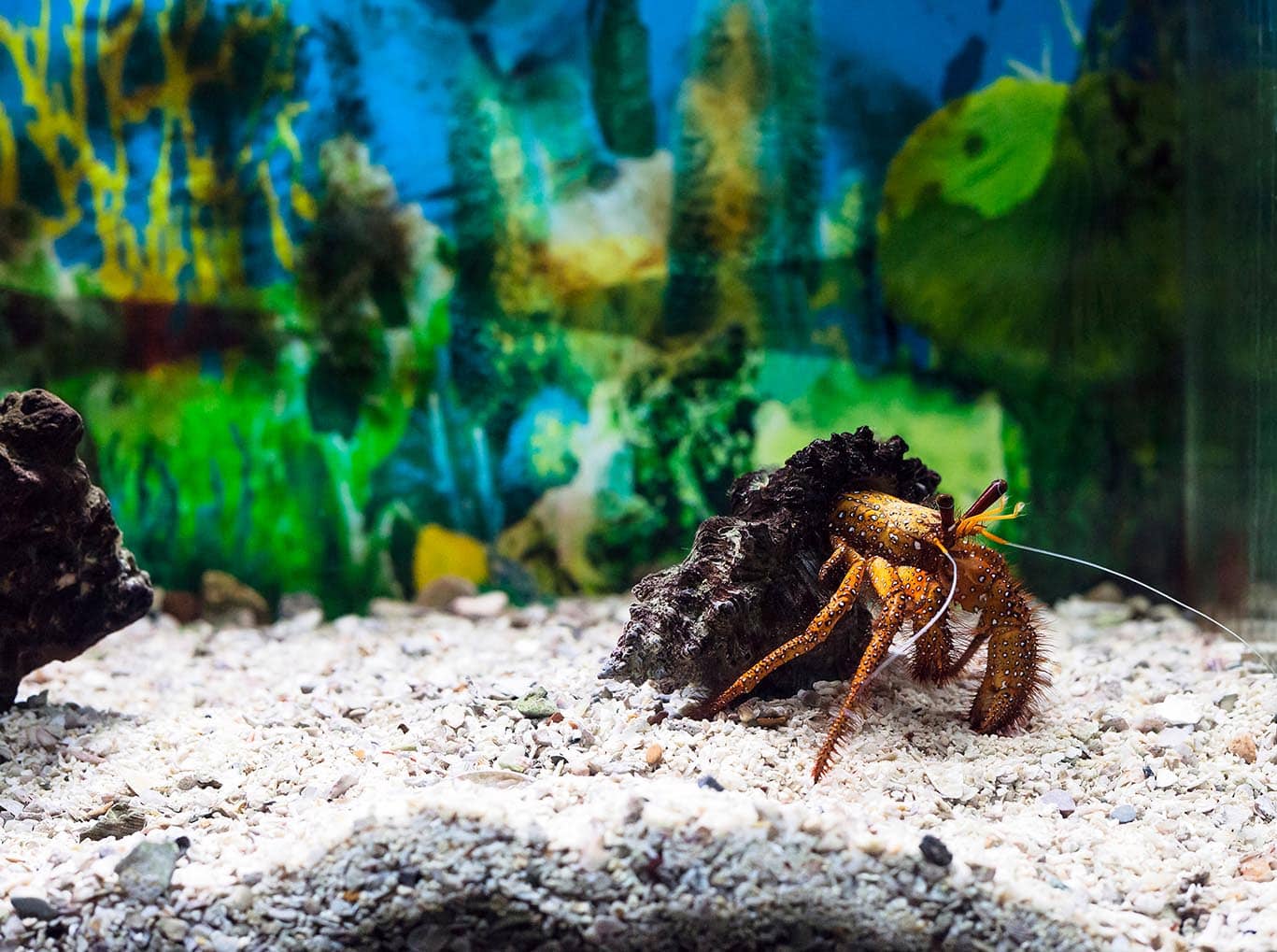
Calcium Sources
Aside from animal- and plant-based foods, hermit crabs need a substantial amount of calcium in their diet to support their exoskeleton, which is vital during their molting. Here are a few foods that are good sources of calcium. Just remember to make them small enough for your crabs to safely consume them!
Commercial Diets
Commercial diets are generally not recommended due to the risk of chemicals and non-nutritious ingredients that can potentially harm your hermit crab. If you must give commercial foods to your hermit crab, ensure that they are high-quality ones from your local pet store. Examples of good commercial hermit crab foods are HBH Pisces Pro and Florida Marine Research, which are available for online purchase.
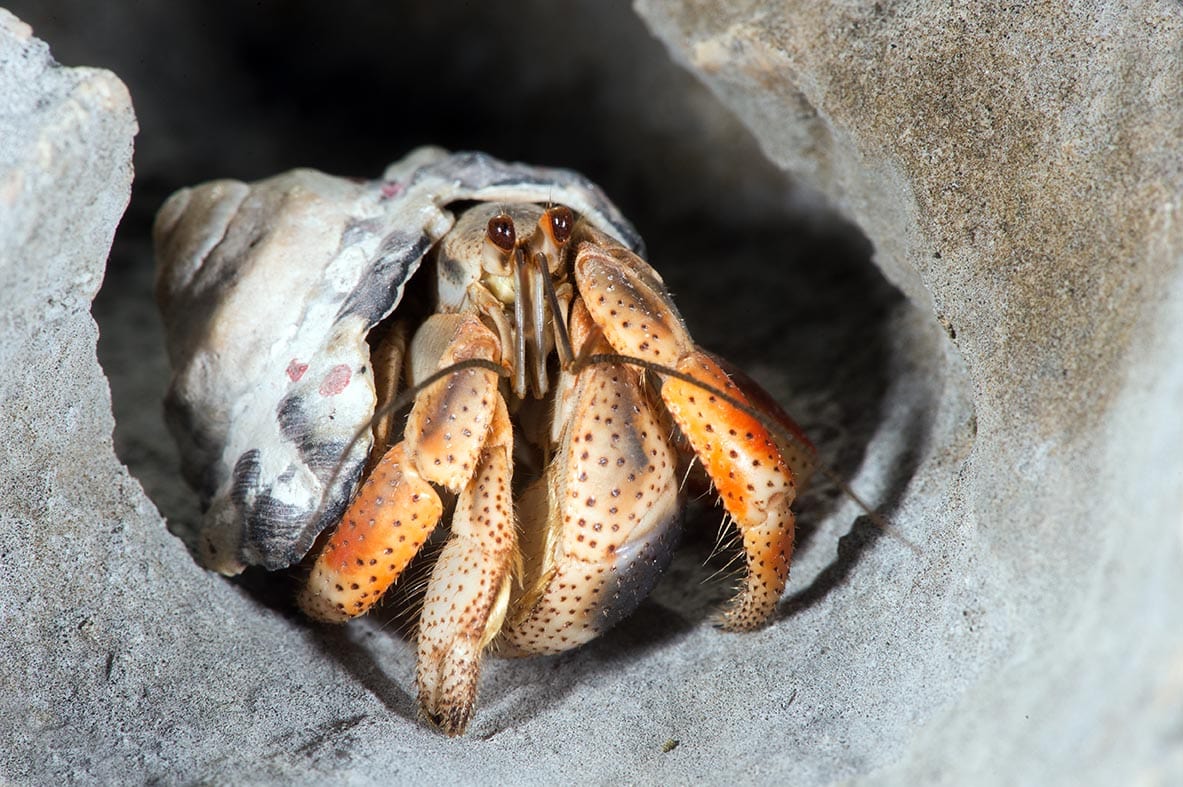
Final Thoughts
Although hermit crabs can eat just about anything, it is still important to give them a balanced and healthy diet. Knowing what your hermit crab likes may be a game of trial and error as you give them different kinds of foods.
Hermit crabs are nocturnal creatures, so they may be more ready to eat at night compared to during the day. Ensure that you prepare and give your pet healthy foods with good nutritional balance every day to ensure that your hermit crab is happy in your care!
You may also want to read:
Featured Image Credit: Paul Tessier, Shutterstock


